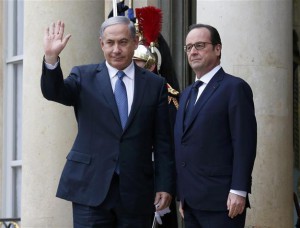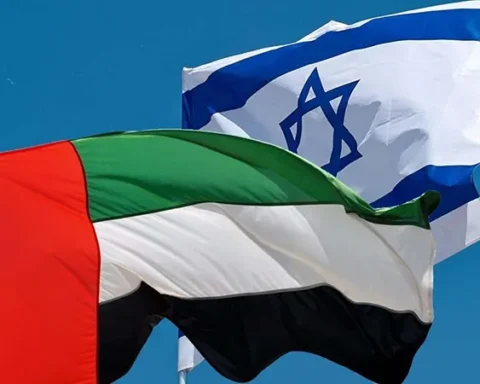A day after the attack on Charlie Hebdo in Paris, the International Business Times (IBT) had to apologise for an article that linked Israel’s Mossad to the attacks.
It’s Editor-in-Chief said the article “should never have been published and we have therefore removed it from our site. The story was beneath our standards and we apologize for this basic lapse in judgement.”
But one has to wonder why, following a barbarous act that has spawned a worldwide defense of freedom of speech and expression and freedom of journalists, an apology was needed.
And this being while a clearly false story has been maintained all over the world, which whitewashes any involvement from intelligence agencies and generally doesn’t even draw attention to the timely suicide of police commissioner Helric Fredou the day after the Charlie Hebdo attack (an element of the story that, astonishingly, still isn’t being talked about in the corporate media, which seems to think his death isn’t relevant).
I covered the Paris/Charlie-Hebdo false-flag (as in: staged intelligence operation) at length here: so we won’t revisit all of that information again now.
Needless to say, however, I made the case for Mossad having been involved.
But didn’t take a great leap of imagination for many to posit that France’s recognition of a Palestinian state might have been one pretext (among others) for the staged terror event in Paris, possibly involving national and international parties invested in maintaining Israeli state interests.
A friend of this blog’s told me a few weeks ago. ‘Intellecteur’, who lives in France, e-mailed me about the Paris attack and the aftermath in France and one of the things she said in that e-mail was this: “Something “funny” happened more than a month ago and not a single French media has relayed it. Benyamin Netanyahu made some threat to France, saying that ‘terrorism was coming to us’ because the (French) government recently recognised Palestine as a real state. When I heard of it, I talked about it to many of the people I know, but (after the Paris attack) not a single proof/video was there to be found anymore.”
There are various international parties looking to quash Palestine’s bid for statehood. By exacerbating mistrust and tension in France towards the Muslim community, some might argue that the trend of both public and political opinion in France (and much of Europe) might be steered away from any sympathy with the Palestinian cause, particularly now that a brutal Islamist attack is perceived to have hit at the very heart of European liberty.
Palestinian terrorism can’t really be regarded in the same way as Islamic State-inspired terror or Al-Qaeda; but then language is powerful and many people glean their world-view only from a few mainstream sources; and several Israeli commentators, Netanyahu included, wasted no time in likening the Paris attack to the frequent attacks Israel suffers from Palestinian terrorists.

The unspoken sentiment was that Paris had received a taste of what it’s like to live in Israel.
During Palestine’s recent bid for recognition (a bid that failed due to the US and Australia voting against it), France’s parliament in effect passed the motion to recognise Palestinian statehood. France’s support for the Palestinian cause understandably ruffled Israeli feathers. The Jerusalem Post reported Israel’s “deep disappointment to France for voting for a Palestinian resolution at the UN Security Council calling for a full IDF withdrawal to the pre-1967 lines by the end of 2017.”
Curiously Benjamin Netanyahu has, as a direct response to the Paris attacks – particularly the Jewish casualties from the Kosher store attack – been urging French Jews to migrate to Israel. One wonders whereabouts in Israel Netanyahu has in mind for any prospective French emigrants to settle in, given that Israeli settlement building is already rather famously far in excess of its legal right. Netanyahu calling for further Jewish immigration to Israel can easily be seen as a direct taunt to both the Palestinians and their longstanding calls for Israel to cease their (illegal) settlement building.
Whether the Israeli Mossad was or wasn’t behind the attack in Paris, Netanyahu was certainly using this event (and the Paris March) to capitalise on Israeli interests and further the Zionist agenda in Israel. The Paris attacks occurred at a time where the Palestinian government, despite its failure to have its statehood recognised, has been inducted into the International Criminal Court, meaning that it can in theory pursue war-crimes charges against Israel and the IDF.
This maneuver by the Palestinian leadership was condemned by the Israeli government (and the US) and is clearly problematic for Israel.

When Palestinian leaders applied to join the ICC, Benjamin Netanyahu declared that they had chosen “a path of confrontation” and that Israel would “not sit idly by”.
What happened last week in Paris can be seen to be turning popular sentiment and opinion further against perceived Islamic militancy in all its forms – including Hamas, Hezbollah and any form of Palestinian resistance, which has already been (wrongheadedly) compared to ISIL-inspired terrorism this week by several Israeli commentators, keen to score propaganda points – while the attack on the Kosher store has firmly planted the idea of Jews being under threat (which they sadly are) into the common perception of the situation.
The taking of Jewish Kosher store victims back to Israel for burial amid a highly expanded, emotive ceremony (despite the fact they were French citizens) further amplifies this garnering of international sympathy for the Jewish community and the Israeli cause: at a time, let’s reiterate, when the Palestinian government finally may have the right to pursue legal action against Israeli state terrorism.
At a time also when the Israeli state badly needed to win back international sympathy for its own cause after how much sympathy for the Palestinians was generated by the devastating Israeli offensive against Gaza last year. Israel’s best friend and permanent patron, the US, already (and predictably) strongly opposes Palestine’s ICC membership, claiming Palestine is not a recognised ‘state’.
This is a somewhat circular argument, as one of the main reasons Palestine is not a ‘state’ is because the US is determined not to recognise it as such and was sure to make certain the most recent bid failed.
The Palestinians – and a number of others – believe some of the Israeli military actions in Gaza last July and August did amount to war crimes. During the 50-day conflict, more than 2,100 Palestinians were killed – most of them civilians, according to the UN – and tens of thousands of homes in Gaza were destroyed or badly damaged, a massive number of them still in ruins or disrepair even now. Amnesty International was in agreement and on December 9th declared Israel’s assault on Gaza as a ‘war crime’.
Legal action is also planned by the Palestinian authority against the ongoing expansion of Israel’s illegal settlements in the West Bank and East Jerusalem – land it has occupied since the 1967 Middle-East war.
Article 8 of the Rome Statute dictates that the unlawful deportation, transfer or confinement of protected persons – those living in territory which is under military occupation – constitutes a war crime. Read that document (pdf) here.

Numerous Israeli politicians have been naturally worrying that international pressure was moving in the Palestinians’ favour and that Israel needs to show that it’s reacting decisively ahead of an Israeli General Election in March.
For the record, I’m not at all downplaying the tragedy of the deaths of those four Jewish men in the Kosher store attack; but I always make the distinction – as should we all – between the ‘Jewish community’ and the State of Israel and its political interests (and as we should, for that matter, between extremist Islamism and ordinary Muslim communities; it’s sad how many people don’t in both cases). Netanyahu has tried to hijack those deaths and the perceived dangers faced by the Jewish community in Europe merely to further Israeli state interests, particularly against Palestinian interests.
Even French Jews themselves have criticised Netanyahu’s actions. In this piece from Haaretz, a French Jew who had emigrated to Israel some time prior to the Paris attacks said, “I came to Israel because I am a Zionist, I didn’t leave France out of fear. I always refused to be afraid and I refuse to say that we should leave out of fear.”
A degree of fear or sensitivity concerning threats to Jewish communities is of course entirely understandable and justified, given the historical context of how Jews have previously been treated in Europe; but there are other issues in play here too, in which the Jewish communities in Europe, like the Muslim communities, are being used as propaganda pawns in political games.
The reality now may be that the Palestinian people are in danger of being marginalised again from the mainstream narrative in favour of a new or renewed narrative of Jewish victimhood and, subsequently, Israel’s right to guarantee safe haven to ‘endangered’ European Jews (by building yet more settlements and shrinking Palestinian land even further). Israel, whether it’s worried about the ICC or not, maintains its staunch, unrelenting stance, continuing – even as the ICC investigation begins – to violate Syrian territory and launch attacks against Assad/Syrian government targets, including a strike yesterday that targeted and killed Hezbollah personnel.
If – and it’s a big if, given how many parties will be inevitably manoeuvring to impede the Palestinian initiative – the ICC investigation does find Israel guilty of war crimes, this renewed narrative of the Jewish community’s need to defend itself will play a major part in any State of Israel justification of its military actions.
Whether it’s likely or unlikely that ICC proceedings will proceed to hold the State of Israel to any substantial account at the end of the process, I wonder if the ICC accommodation of Palestinian claims might set a new precedent for other perpetrators of state terrorism or illegal warfare to some day be brought to account for as-yet-unacknowledged crimes.
Could France or NATO be held to account for the assaults on Libya in 2011, for example? Could Syria some day hold Saudi Arabia, Qatar, the US, Turkey and Israel to account for the nightmare it has suffered since 2011?
We’d probably be being overly optimistic in considering any of that a possibility; but it makes me wonder if a number of states, not just Israel, would be unenthusiastic about seeing the Palestinians achieve its goals in the ICC and set a new precedent.




